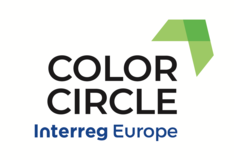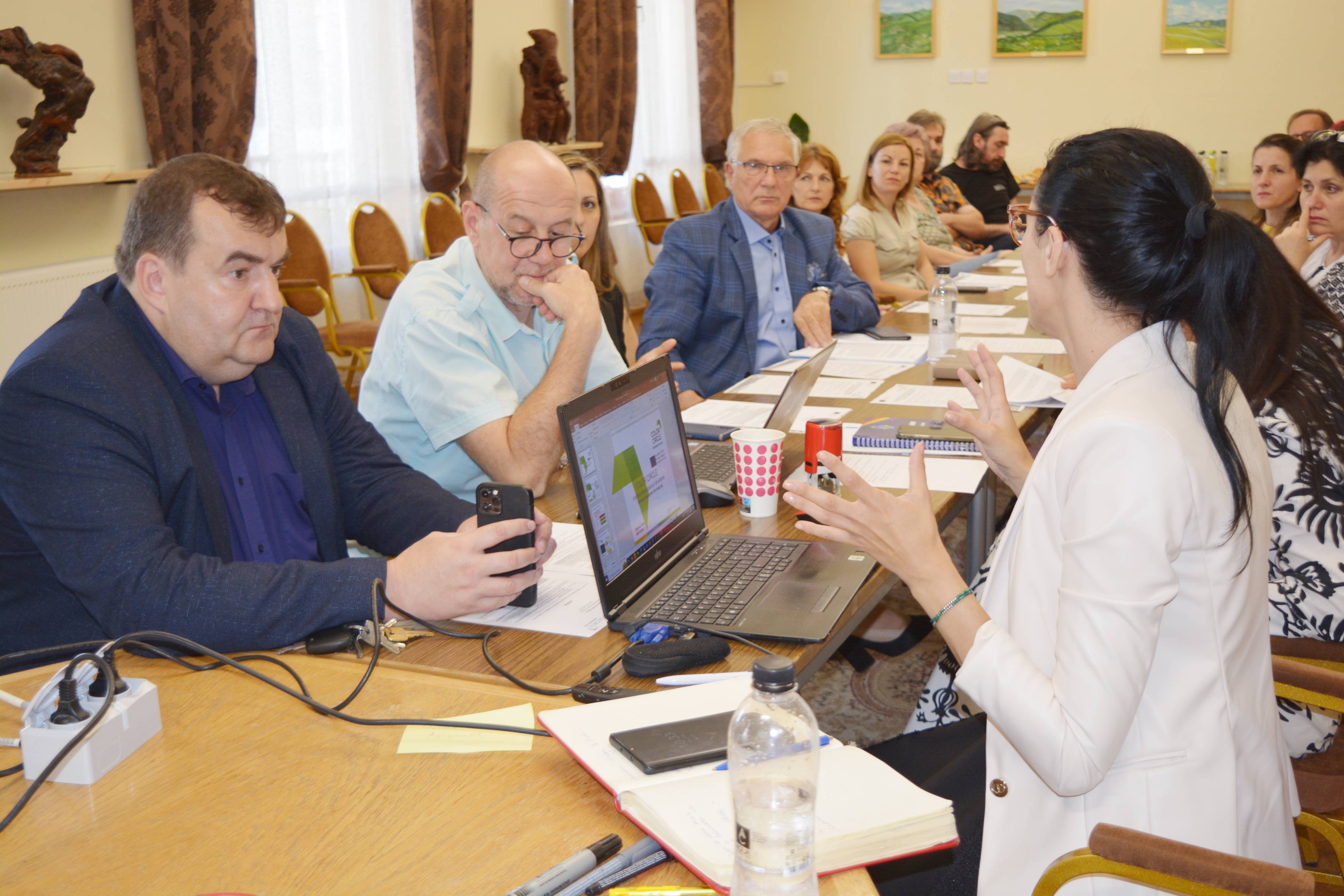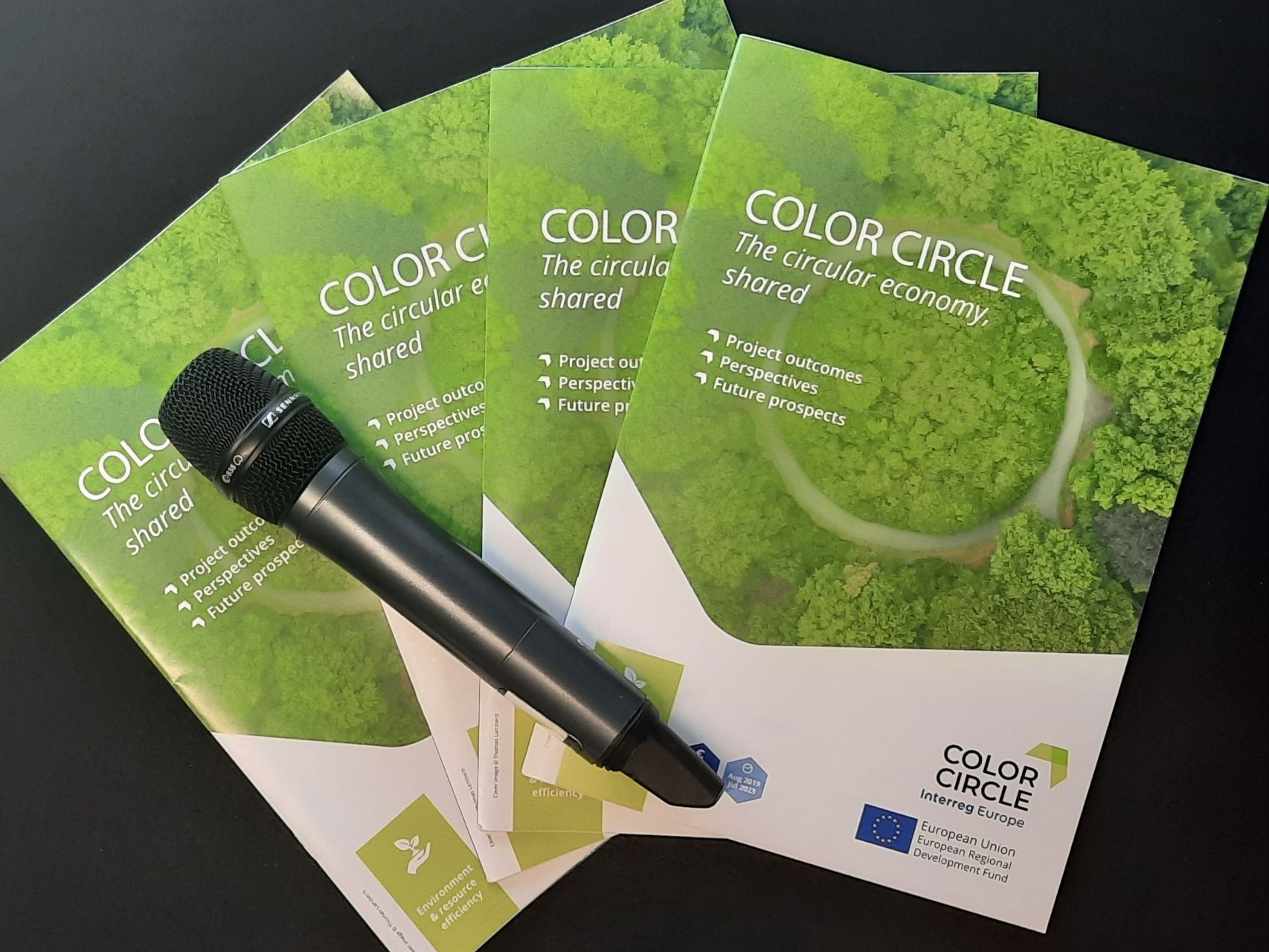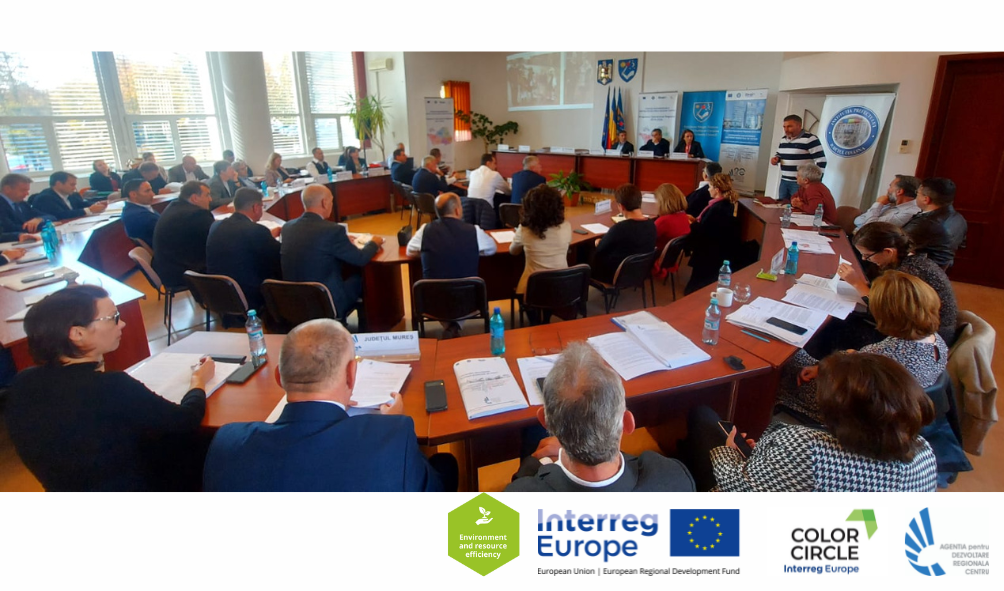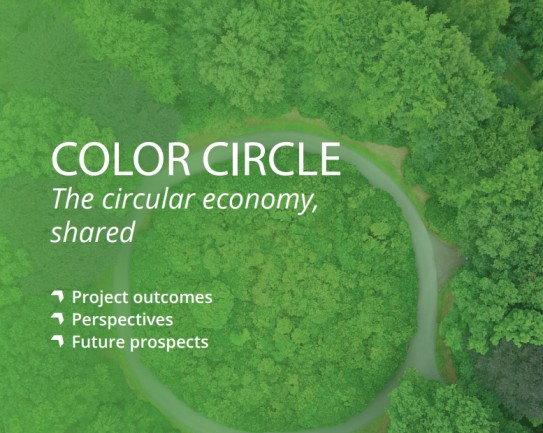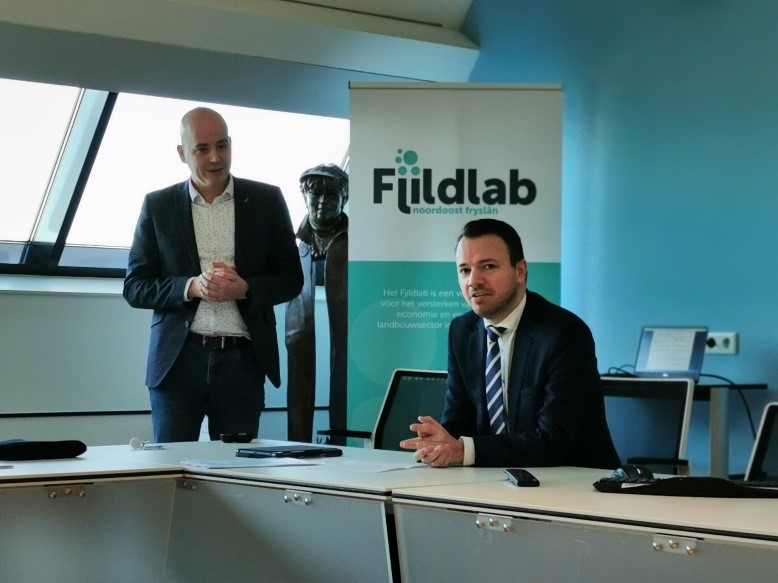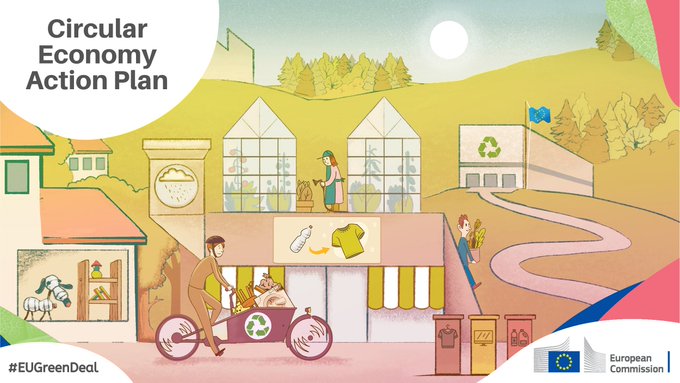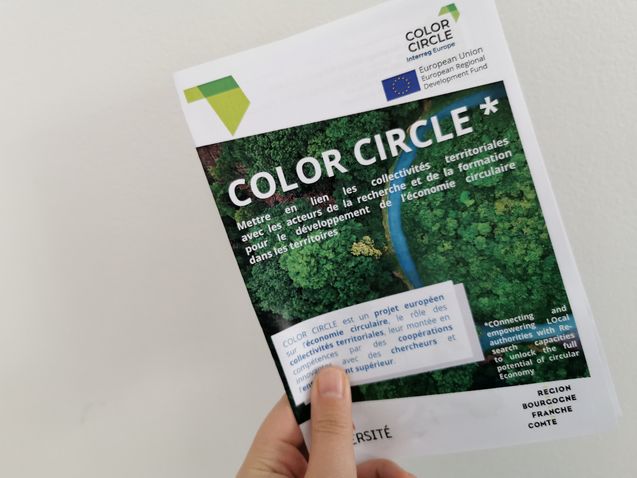On 30th March 2023, COLOR CIRCLE organised its final dissemination event "In search for circularity".
As COLOR CIRCLE was launched 4 years ago, the event allowed the partners to both show the outputs of the project and discuss with EU and regional attendees about the circular economy in their territories. The room also broadens its perspective by identifying new challenges ahead of circular economy and peer-learning, as well as cohesion policy.
EUROPEAN PUBLIC POLICIES RELATED TO CIRCULAR ECONOMY
Keynote speeches: taking forward the European Green Deal and the EU’s Circular economy Action plan
At the EU level, the circular economy (CE) has become one of the burning topics on the agenda under the European Green Deal. Erwin Siweris, the programme director of Interreg Europe, reminded the room that measures taken in this area – including on textile, plastics - are considered as the main tools to implement the European Green Deal. In addition, Emmanuelle Maire, head of unit at the European Commission, provided the room with the legal framework of the CE, including the next steps in 2023 leading to the implementation of the circular economy action plan. An initiative addressing unintentional release of microplastics, and three revisions are expected to be published. These revisions revolve around the monitoring framework for the CE, rules on end-of-life vehicles and the waste framework directive. The EU is also integrating the circular economy in its global actions, as it is pushing to include this topic into free trades agreements. Going back to the local level, Adrian Teban, a member of the European Committee of the Regions and mayor of Cugir in Romania, explained that this institution and more broadly the local authorities can act as relays by disseminating the EU initiatives locally. Besides, Mr Teban highlighted how much research is relevant for local authorities, especially on circular economy, as it supports and feeds their actions.
Conversations about the role of European Regions in the implementation of the EU’s Circular Economy Action Plan and the European Green Deal
Partners underlined that encouraging connections between research and local authorities helped implement the circular economy in their territories. Concrete actions by universities, development agencies and public authorities were presented to the room. In Friesland, a Dutch agricultural region, a circular living lab supports the green and sustainable transition. The living lab is conceived as a tool enabling discussions and meetings between various stakeholders. This tool was adapted in Centru in Romania to lead to an open innovation platform targeting energy efficiency. Another device was introduced by the County Council of Granada and HESAM Université: training programmes for students and doctorale students. Those programmes financially support students. In the case of our Spanish partner, master's students are sent to municipalities during 6 months after being trained to circular economy. This scheme brings research to the place of traineeship. In the case of HESAM Université, doctoral students are employed by a municipality for three years. Their research tackles a topic relevant for the local level. Finally, the Bourgogne-Franche-Comté and the Central Bohemian Innovation Center stressed the importance to accompany project holders. The French partner launched a project booster which funds circular economy-related initiatives of SMEs, municipalities, NGOs. The Czech partner improved their consultancy programme for SMEs by adding a “circular economy” component. They therefore train SMES on the CE or help them turn their business model into a circular one. Both actions lead to an increase in competitiveness of the companies and turn the local ecosystem into a circular one.
CREATING AN ECOSYSTEM INVOLVING ALL STAKEHOLDERS TO IMPLEMENT CIRCULAR ECONOMY
Speakers agreed on the importance of initial and life-long education on the CE. They called for creating dedicated courses, even though the multidisciplinarity required from teachers makes it difficult. The speakers then highlighted that research should get closer to the territories and be more connected to the actual needs. It should impact the territories and be meaningful for the citizens. Research could rely on tools enabling dialogue with public authorities.
In addition, private actors explained how they can contribute to the awareness-raising effort. They can indeed start introducing circular economy in their practices. They may also disseminate initiatives to the citizens and the municipalities.
Finally, the speakers highlighted some challenges faced by local and regional actors as well as solutions. As regions and municipalities do not have the same means to achieve the green transition, they do need support either by cooperating at the European level or by relying on research.
To have a look at the pictures of the event and read the full minutes of the event.
